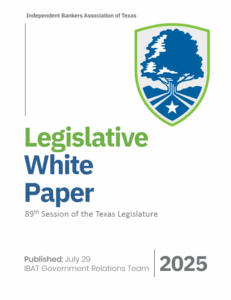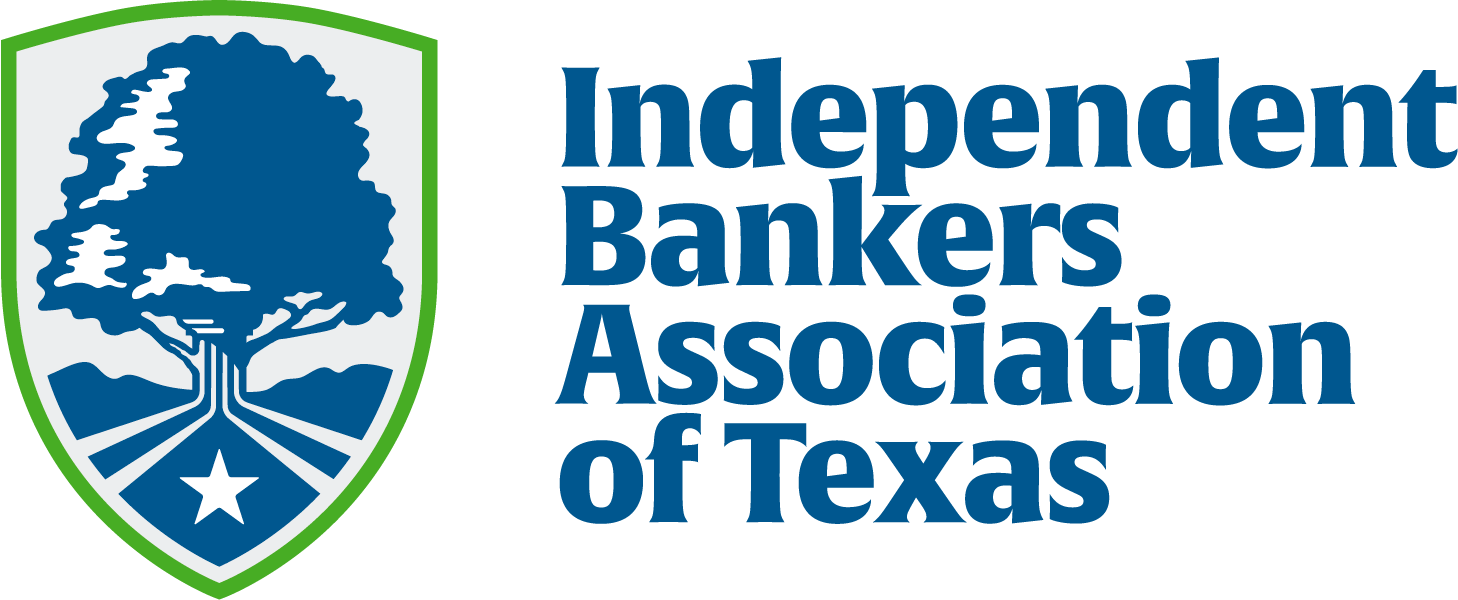Legislative Priorities
Legislative Priorities
Meet the Legislative Team
[email protected]
[email protected]
[email protected]
Legislative Resources
Stay engaged with lawmakers throughout the legislative session or in the interim, using these helpful resources.
Federal Priorities – 2026/2027
Community banks, like most small businesses, are facing significant challenges on multiple fronts. The Independent Bankers Association of Texas (IBAT) applauds the commitment and resilience of these small banks in supporting their communities and customers. Their exemplary performance during the pandemic reinforced the value and critical importance of this small sector of the banking industry on so many levels.
The business models of community banks and the global financial giants could not be more divergent. While there is more regulatory scrutiny on the systemically important entities, all banks—regardless of risk profile or business activities—must adhere to basically the same set of rules and regulatory expectations. IBAT has long pushed for a recognition of the unique business model of community banks and the positive contributions these institutions make in meeting the needs of small business borrowers, working with low- to moderate income customers, contributing to their communities and creating jobs and economic activity. We encourage Congress to focus on business activities and risk profiles when determining appropriate regulatory treatment of various categories of banks.
State Priorities – 89th Texas Legislature
ICBA Affiliation
IBAT is proud to be affiliated with the Independent Community Bankers of America, the only national association dedicated exclusively to community banks and to the creation and promotion of an environment in which community banks flourish.

Legislative White Paper
89th Session of the Texas Legislature
This document provides an overview of key legislation from the 89th Session of the Texas Legislature relevant to Texas community bankers.
As always, if you have any questions or need assistance from the IBAT team in understanding the potential impact of the bills outlined here, please don’t hesitate to contact us at [email protected].

